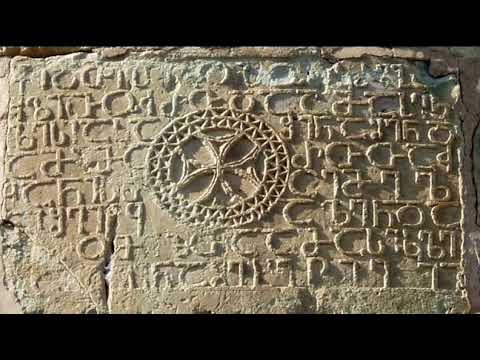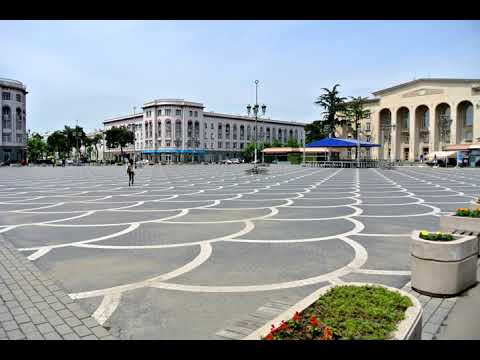Kartli | Wikipedia audio article
This is an audio version of the Wikipedia Article:
Kartli
00:01:01 1 Etymology
00:02:57 2 Early history
00:05:12 3 Medieval subdivision
00:06:21 4 Later history
Listening is a more natural way of learning, when compared to reading. Written language only began at around 3200 BC, but spoken language has existed long ago.
Learning by listening is a great way to:
- increases imagination and understanding
- improves your listening skills
- improves your own spoken accent
- learn while on the move
- reduce eye strain
Now learn the vast amount of general knowledge available on Wikipedia through audio (audio article). You could even learn subconsciously by playing the audio while you are sleeping! If you are planning to listen a lot, you could try using a bone conduction headphone, or a standard speaker instead of an earphone.
You can find other Wikipedia audio articles too at:
/ @wikipediatts983
You can upload your own Wikipedia articles through:
https://github.com/nodef/wikipedia-tts
"The only true wisdom is in knowing you know nothing."
- Socrates
SUMMARY
=======
Kartli (Georgian: ქართლი [kʰartʰli] (listen)) is a historical region in central-to-eastern Georgia traversed by the river Mtkvari (Kura), on which Georgia's capital, Tbilisi, is situated. Known to the Classical authors as Iberia, Kartli played a crucial role in the ethnic and political consolidation of the Georgians in the Middle Ages. Kartli had no strictly defined boundaries and they significantly fluctuated in the course of history. After the partition of the kingdom of Georgia in the 15th century, Kartli became a separate kingdom with its capital at Tbilisi. The historical lands of Kartli are currently divided among several administrative regions of Georgia.
The Georgians living in the historical lands of Kartli are known as Kartleli (ქართლელი) and comprise one of the largest geographic subgroups of the Georgian people. Most of them are Eastern Orthodox Christians adhering to the national Georgian Orthodox Church and speak a dialect which is the basis of the modern Georgian literary language.
wikipedia tts-ის სხვა ვიდეოები
 05:14
05:14
Principality of Svaneti | Wikipedia audio article
 24:42
24:42
Eduard Shevardnadze | Wikipedia audio article
 00:59
00:59
Bolnisi cross | Wikipedia audio article
 01:08
01:08
Georgian Stock Exchange | Wikipedia audio article
 02:29
02:29
Lazica | Wikipedia audio article
 04:34
04:34
Akhalkalaki | Wikipedia audio article
 00:51
00:51
Samachablo | Wikipedia audio article
 01:34
01:34
Dzala ertobashia | Wikipedia audio article

მსგავსი ვიდეოები

Kvemo Kartli | Wikipedia audio article
wikipedia tts

Samachablo | Wikipedia audio article
wikipedia tts

Mtiuleti | Wikipedia audio article
wikipedia tts

Bolnisi cross | Wikipedia audio article
wikipedia tts

Georgia (country) | Wikipedia audio article
wikipedia tts

Gori, Georgia | Wikipedia audio article
wikipedia tts

💦 კუმისის ტბა | The Kumisi Lake 🔥
დრონერი | Droner

Kartlis Deda, Tbilisi Georgia | Mansoor
Muhammad Mansoor